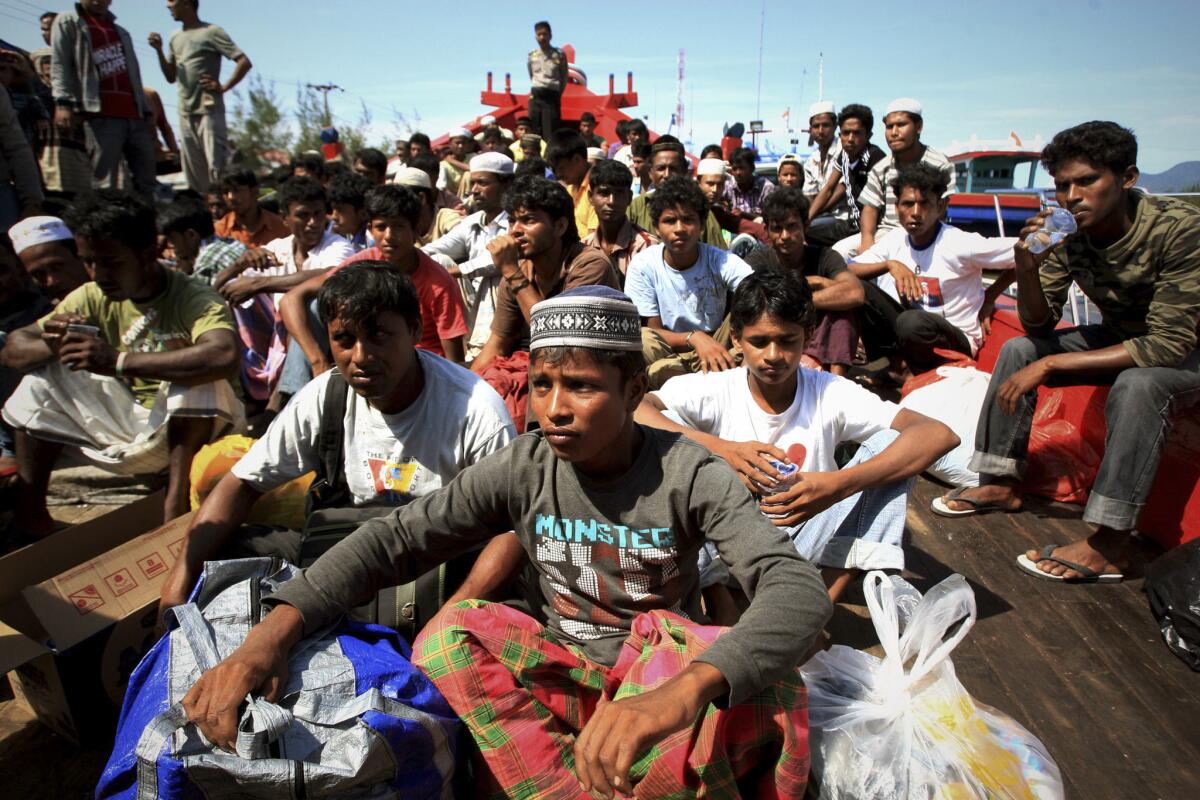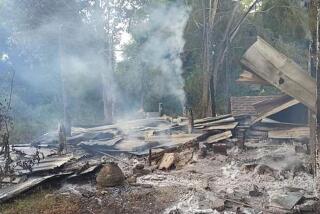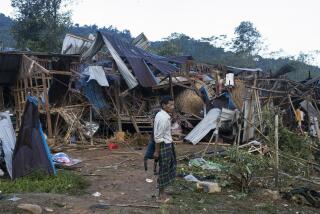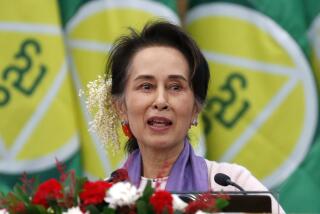Myanmar panel proposes measures to ease ethnic tensions

NEW DELHI, India -- Ever since Myanmar opened to the West, released political prisoners and allowed the opposition led by Nobel laureate Aung San Suu Kyi to run for office, it has been dogged by tensions among its many ethnic and religious minorities.
Rifts and discord held largely in check during decades of repressive military rule have burst into the global spotlight.
On Monday, the government issued a report on one of the most difficult situations it faces: how to tackle tensions between the Rohingya, a Muslim minority concentrated in the western state of Rakhine, and the ethnic Rakhine Buddhist majority. According to the United Nations, the Rohingya are one of the worldâs most persecuted minorities.
The steps proposed by the government to ease tensions include doubling the number of security forces in the volatile state and introducing family planning education to stem the growth of the Muslim community, according to an executive summary obtained by the Associated Press.
The summary reportedly includes no concrete steps to return more than 100,000 displaced and stateless Rohingya Muslims to their homes. Members of the community are not recognized as citizens by Myanmar, also known as Burma, or neighboring Bangladesh.
Two violent clashes between Rohingya Muslims and Rakhine Buddhists in June and October left dozens dead and forced tens of thousands, mostly Muslims, to flee their torched homes. Some have tried to escape to neighboring countries, while most have remained in temporary camps, living in squalid conditions.
âWhile keeping the two communities apart is not a long-term solution, it must be enforced at least until the overt emotions subside,â the Associated Press quoted the summary as saying.
The use of birth control would be voluntary, the document added, but this âwould go some way to mitigatingâ the crisis, given concerns by the Buddhist majority that Muslims had âundermined peaceful coexistence.â
Most Rakhine Buddhists and a significant part of the larger Burmese population view the Rohingya as illegal immigrants from Bangladesh, even though many have lived in Myanmar for generations.
Last week, the New York-based watchdog Human Rights Watch issued a detailed account of last yearâs clashes, accusing Buddhist monks, local politicians, bureaucrats and state security forces of carrying out an organized campaign of âethnic cleansingâ against the Rohingya.
âThe government needs to put an immediate stop to the abuses and hold the perpetrators accountable, or it will be responsible for further violence against ethnic and religious minorities in the country,â Phil Robertson, the groupâs deputy Asia director, said in a statement.
The report summary, written by an independent commission set up by President Thein Seinâs office after last yearâs clashes, also calls for humanitarian assistance for the displaced, better control over rumors and more training for security forces on riot-control techniques and human rights sensitivity.
The summary reportedly refers to the Rohingya throughout as Bengalis, reflecting a widespread belief in Myanmar that the community of about 800,000 should leave and live in neighboring Bangladesh.
Anti-Muslim violence also flared in the central town of Meiktila in March, leaving 43 people dead and 93 injured, according to government figures. This month, a fire broke out in a Muslim boarding school in Yangon that killed 13. The police said a short circuit was to blame, but some community leaders suspect it was arson.
ALSO:Chinese police make more arrests in ethnic violence
Syriaâs prime minister survives bomb attack in capital
Car bombings in Shiite areas of Iraq kill more than 20
Tanvi Sharma in The Timesâ New Delhi bureau contributed to this report.
More to Read
Sign up for Essential California
The most important California stories and recommendations in your inbox every morning.
You may occasionally receive promotional content from the Los Angeles Times.










